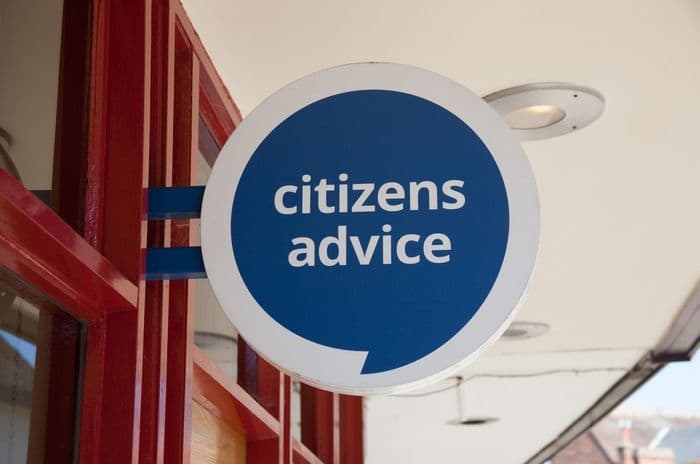Home > Broadband > News > Citizens Advice suggest price cap for broadband
Citizens Advice suggest price cap for broadband
CITIZENS Advice have released research showing that customers on cheaper broadband deals are hit with an average rise of 43% once their introductory fixed term deal ends.

This equals a hike of £113 a year (or roughly £9.45 a month), a sum which the charity hold up as evidence that internet service providers (ISPs) are punishing their loyal customers.
In fact, they refer to such an increase as a "loyalty penalty", and go so far as calling for ISPs not only to provide more "up-front information in advertising", but to consider introducing a price cap for more vulnerable customers.
However, while more transparent advertising is likely to reduce the numbers of people remaining stuck on more expensive contracts, it's likely that a significant reduction in such numbers would result only in the value of special offers being reduced in parallel.
'Loyalty penalty'
Best ISPs for video gamers
Receiving cheaper internet and landlines
Free broadband: how to get it
Yet given that the big gap between introductory and normal subscription rates disproportionately affects the vulnerable, this might be a worthwhile sacrifice to make, especially in light of Citizens Advice's research.
Their survey reveals that, while the average broadband customer remains on the same contract for four years, those aged 65 or over are more than twice as likely than others to have been on the same expensive deal for 10 years.
This equals a staggering amount of missed savings, with the 'loyalty penalty' for being a BT customer amounting to £594 over four years alone, as shown by the table below:
| Provider and cheapest basic broadband deal | Monthly tariff during fixed contract period | Monthly tariff after fixed contract period | % increase | Monthly difference | The annual loyalty penalty | The loyalty penalty over 4 years |
|---|---|---|---|---|---|---|
| BT 12 month | £24.49 | £40.99 | 67% | £16.50 | £198.00 | £594 |
| Virgin Media 12 month | £32.25 | £32.25 | 0% | £0.00 | £0.00 | £0.00 |
| Talk Talk 24 month | £20.00 | £25.50 | 28% | £5.50 | £66.00 | £132 |
| Sky 12 month | £18.99 | £28.99 | 53% | £10.00 | £120.00 | £360 |
| EE 18 month | £21.00 | £28.50 | 36% | £7.50 | £90.00 | £225 |
Source: Citizens Advice
Added to the disproportionate numbers of the elderly on older, expensive contracts, the charity also note that "people on a low income are almost 3 times as likely as high earners to be in their contracts for 10 years or more".
If nothing else, this highlights how, quite perversely, introductory special offers are being disproportionately funded by the vulnerable, who are paying more expensive rates for longer so as to fund the discounts ISPs use to entice new, often more privileged customers.
Cap?
In light of this injustice, Citizens Advice are calling for more transparent advertising, as well as an investigation into "how a price cap, similar to the pre-payment meter cap in the energy market might work for broadband customers".
Their Chief Executive, Gillian Guy, said, "The government has rightly put energy firms on warning for how they treat loyal customers - the actions of broadband firms warrant similar scrutiny."
Here, Ms Guy is referring to the price cap that Ofgem introduced on April 1st for energy customers on prepayment meters, while Citizen Advice's press release also goes on to mention Ofcom's recently announced plan to reduce fees for BT customers who have only a landline with the provider.
However, while both of these interventions are necessary insofar as the markets they cover don't enjoy effective competition, it's not clear that the same thing can be said about the broadband market.
On the contrary, the gulf between introductory and normal subscription fees is very much the result of relatively healthy competition between rival providers, so it's hard to see how a price cap could be introduced without interfering with and distorting this competition.
On top of this, BT - the worst offender when it comes to "loyalty penalties" - already offer BT Basic to those in receipt of certain benefits, so it's highly unlikely that they'll support a cap.
This likelihood is further indicated by the response of the Internet Service Providers Association, whose Policy Lead, Till Summer, told us, "our members already follow advice from the ASA, the advertising regulator, by clearly stating in their advert if an introductory price applies and for how long".
Solutions?
In light of this likely opposition to a cap, it would appear that a more balanced if less decisively effective answer would be to force ISPs to make information as "up-front" as possible.
This would follow on from similar pronouncements from the Advertising Standards Authority, who in October required all ISPs to combine monthly broadband and line rental fees into a single rate.
However, while it would serve to reduce the percentage of people (35%) who "don't realise they could face price hikes by staying on the same contract", it's unlikely that it would come close to completely solving the main problem.
That's because, as Citizens Advice themselves observe, even those who are aware remain on the same contracts for four years on average.
This therefore suggests that there's a more fundamental problem than unclear information, which is that the concept and mechanism of consumer-driven switching isn't enough by itself to maximise competition and keep prices down.
As such, it's arguably time that Ofcom take a leaf out of the Competition and Markets Authority's book, and work to establish a database of "disengaged customers" who've been with their providers for more than three years.
By creating such a database, and by having existing customers actually prompted to switch, they might help to drive down prices overall, and to help customers avoid the dreaded "loyalty penalty" in the years to come.
Receive consumer updates that matter in our newsletter

We are independent of all of the products and services we compare.

We order our comparison tables by price or feature and never by referral revenue.

We donate at least 5% of our profits to charity, and we aim to be climate positive.
Latest News

14 November 2025
Plusnet remains the least complained-about broadband provider
10 November 2025
Virgin Media unveils Black Friday 2025 deals
9 November 2025
Disney Jr HD channel joins Sky Kids packReceive consumer updates that matter in our newsletter


